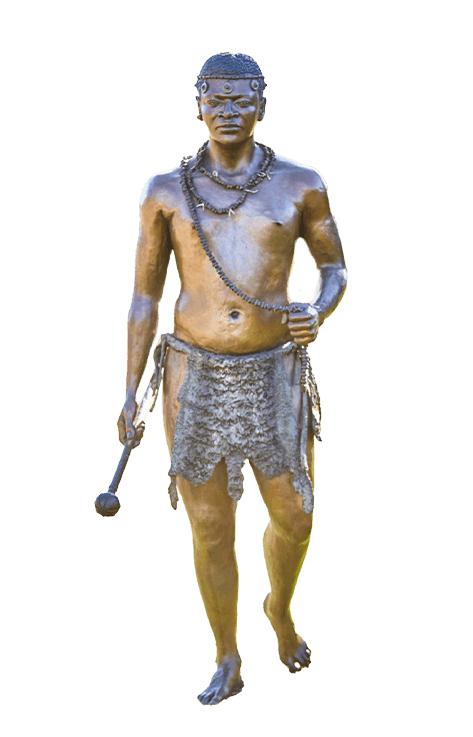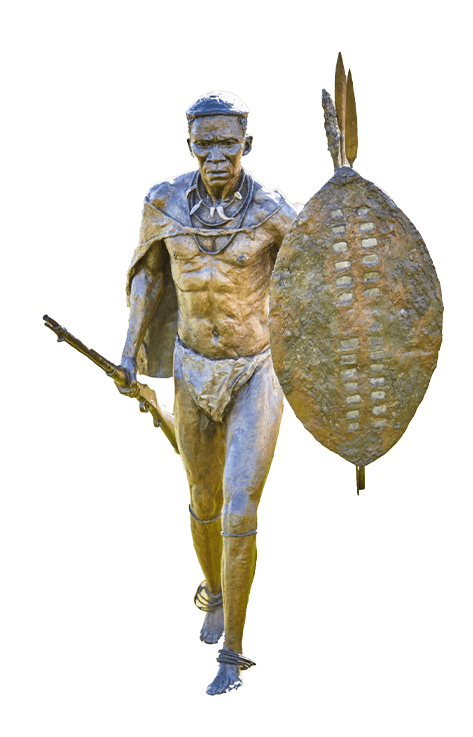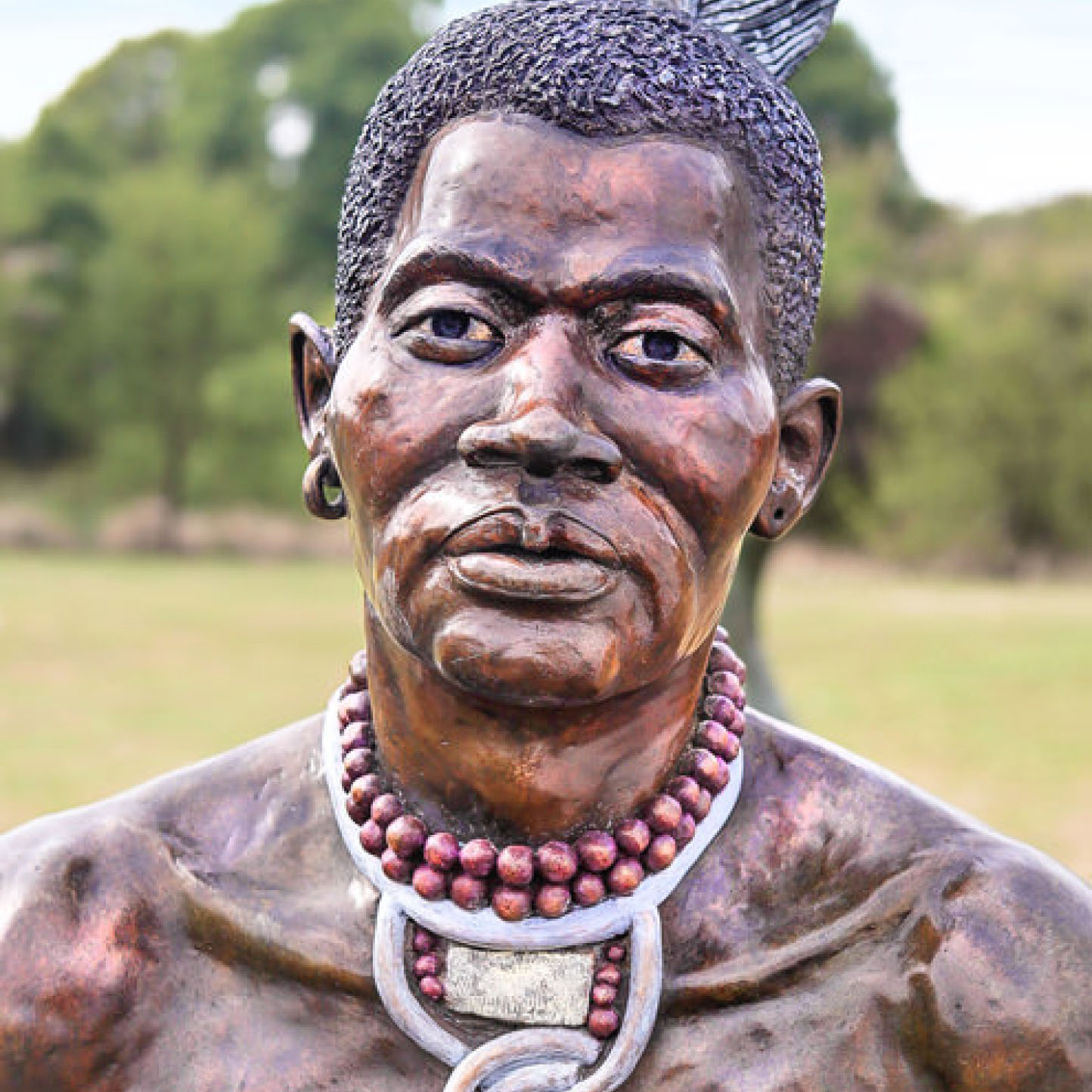
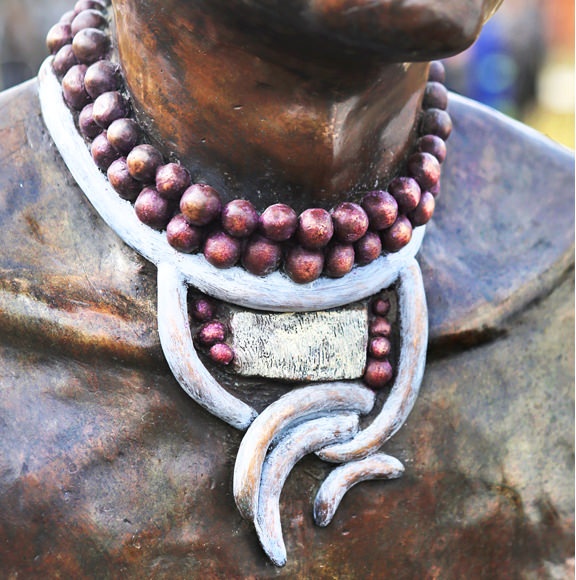
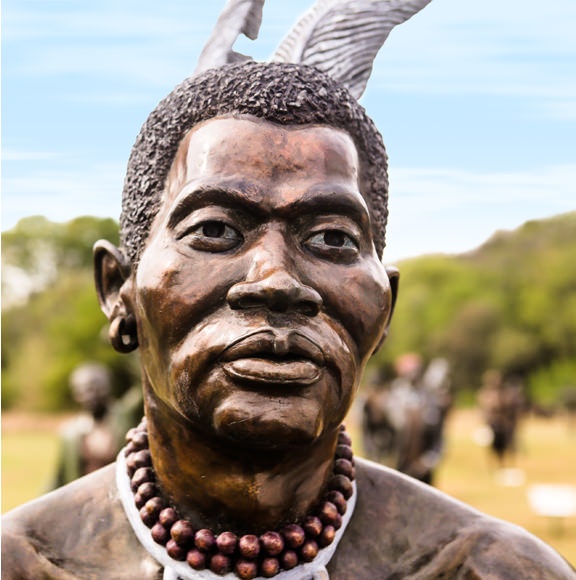
"It is better to die on your feet, than live on your knees!"
Bhambatha's battle cry
Bhambatha Ka Mancinza
1865 - 1906
Chief of the amaZondi clan, Leader of the Anti-Poll Tax rebellion that bears his name
Bhambatha kaMancinza was born in Mpanza near Greytown in what was then still known as Zululand in KwaZulu-Natal. He became chief of the amaZondi in 1890 when the Zulu kingdom was no longer an independent state. Zululand had fallen under British control following the defeat of Zulu king Cetshwayo kaMpande during the 1879 Anglo-Zulu War and was formally annexed to the Colony of Natal in 1887.
All oral sources point out that Bhambatha went through his youth and early married life without noteworthy troubles politically and otherwise. He lived with the bulk of his followers on white-owned farms in the Umvoti division where for many years they had been having difficulties with their mainly Boer landlords, now themselves farming under British rule. Following the Anglo-Boer War (1899-1902), these difficulties increased and African rent-paying tenants were either evicted, forced to become labour tenants, or pay ever-increasing rents.
Between 1901 and 1906 Bhambatha was involved in 30 separate and financially crippling criminal and civil actions, many over his failure to pay rent. In one instance, an Assistant Magistrate was moved to write in 1905 to the Under-Secretary for Native Affairs that "Bhambatha wants the allotment of a location...His people are oppressed and squeezed by certain landowners on whose private locations they live...T.J. Nel and P.R. Botha are joint owners of a certain piece of land on which they place these unfortunate people on very high rents. Within the last three days 48 summonses have been issued to Bhambatha's people for the rent due three weeks ago."
When the Natal Colony, pleading financial pressure, introduced a £1 poll tax to boost revenue of the colonial coffers in 1905, Bhambatha and his clan could ill-afford the extra cost.
In 1906, though Bhambatha was submitting to the Poll Tax, the Natal authorities provoked him into leading a rebellion against it. With most of his clansmen, he fought a two-month guerilla campaign from the Nkandla forest, near Eshowe, in the last episode of African military resistance to colonial domination in South Africa. He united behind him the chiefs and people of many clans, by using King Dinuzulu's name, war-cry and war-badge. Ultimately he and hundreds of his supporters were killed in battle around Nkandla.
Much controversy surrounded his death, as colonial forces claimed to have cut off his head as a trophy, while his followers insisted he escaped and died in hiding.
In 2006 the South African government awarded Bhambatha the Order of Mendi for Bravery in Gold for leading a rebellion against the repressive laws of the colonialist government and for laying down his life for the cause of justice.
